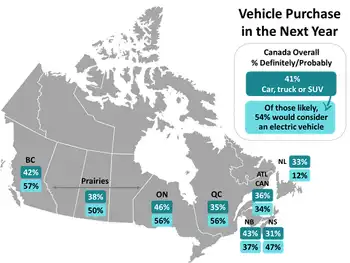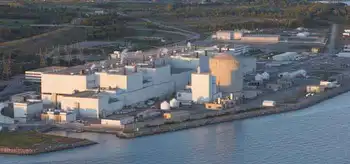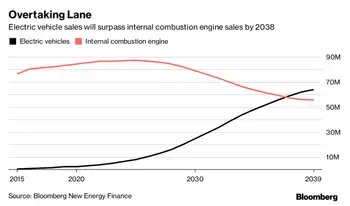Ottawa's nuclear vision assailed
Jerry Grandey, president and chief executive officer of Saskatoon-based Cameco Corp., said the United States has taken the lead over Canada when it comes to creating policies to advance the construction of new atomic reactors.
“The U.S. has stepped up and said nuclear is needed. They are providing incentives to kick-start the program. I don't see that yet in Canada,” Mr. Grandey said in an interview.
The U.S. is offering loan guarantees to private companies that will construct the next generation of nuclear reactors in that country. It has also simplified its regulatory permitting process, Mr. Grandey noted. Neither of these incentives are offered in Canada.
Jerry Grandey, president and chief executive officer of Saskatoon-based Cameco Corp. “The regulatory system should be streamlined. The U.S. streamlined theirs about 10 or 12 years ago. So is our regulatory system equipped with the resources to advance the licensing and approval of these projects? Do we have the right technology to build in Canada? That's being looked at now only in the province of Ontario. The financial model being used needs to be looked at. I don't think Canada has gone very far down the road given our provincial/federal relationship here. Not very far down the road in anticipating what needs to be put in place to encourage that next generation of reactors to be built,” Mr. Grandey said.
With a myriad of permits and regulatory hurdles to clear, nuclear power plants can take more than a decade to bring into service and cost billions of dollars to build.
As Canada has tried to reduce greenhouse gas emissions from dirty coal-fired electricity plants, the potential of nuclear power has returned to favour, despite the safety and security concerns that dogged the industry during its last boom in the 1970s and 1980s.
A new fleet of reactors represents a potential windfall for uranium miners such as Cameco, which also owns 32 per cent of Bruce Power, the operator of the Bruce Nuclear Station on Lake Huron in Ontario.
The province recently committed to building two new reactors at the Darlington Nuclear Station east of Toronto by 2018. The provincial government has estimated the cost to construct the new plants at $26-billion. Environmentalists and critics say the costs will be much higher and the project is likely to take much longer than 10 years to build.
In addition to Ontario, Alberta and Saskatchewan are also mulling the construction of nuclear reactors.
Bruce Power has launched a feasibility study to examine options for Saskatchewan's growing power needs. Among the proposals being studied is the potential construction of two 1,000-megawatt reactors.
Mr. Grandey believes Ottawa should show some leadership on the issue if nuclear power is to become part of the solution to reducing Canada's greenhouse gas emissions.
The nuclear industry is touting atomic energy as a “green” alternative for power generation because nuclear plants are emission-free compared to coal-fired electricity generation.
“Clearly if Canada is going to rely on nuclear to meet some of its Kyoto targets, provincial and federal governments are going to have to develop some strategies and policies that allow it happen,” he said.
Related News

BC Hydro Rates to Rise by 3.75% Over Two Years
VANCOUVER - British Columbia's electricity rates will experience a 3.75% increase over the next two years, as confirmed by the provincial government on March 17, 2025. The announcement was made by Minister of Energy and Climate Solutions, Adrian Dix, who emphasized the decision's necessity for maintaining BC Hydro’s infrastructure while balancing affordability for residents.
For most households, the increase will amount to an additional $3.75 per month, based on an average BC Hydro bill of $100. While this may seem modest, the increase reflects a broader strategy to stabilize the utility's rates amidst economic challenges and ensure long-term energy security…




